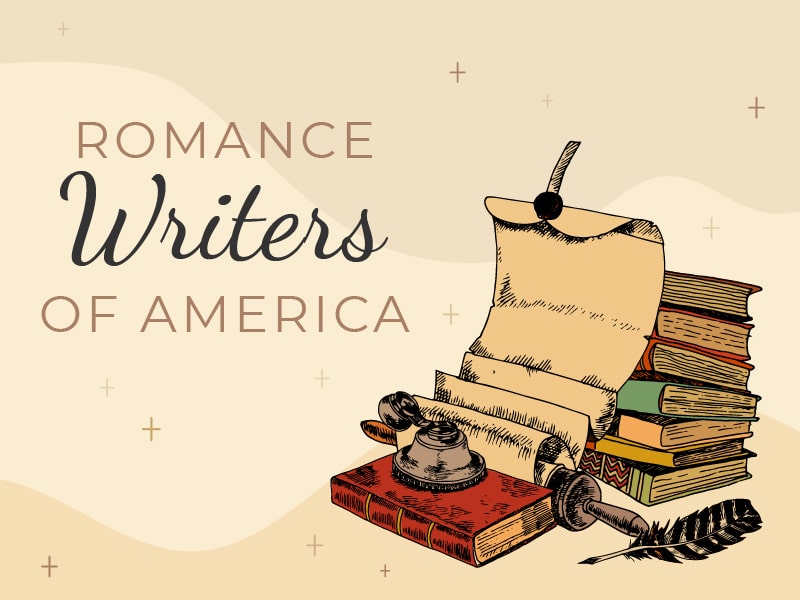The Romance Writers of America (RWA) is an association for thousands of authors who have penned heart-wrenching, passionate tales that have captivated readers worldwide. An influential entity in the literary world, RWA has cemented the romance genre’s position in mainstream literature.
Established in 1980 by a group of romance writers with a shared vision, RWA has since expanded its reach, boasting thousands of members in the U.S. and abroad. What began as a small initiative to support budding romance writers has evolved into a robust organization that has shaped and transformed the romance industry.
Offering an array of services, from networking events to educational seminars, RWA has consistently equipped writers with the tools they need to succeed. A highlight of its contributions is the prestigious RITA Awards, presented annually to outstanding novels and novellas in the romance genre. This accolade has launched the careers of many notable authors, acting as a beacon of excellence in romance writing. Moreover, through its relentless efforts, RWA has propelled the romance genre, influencing trends and raising the bar for literary quality.
Integral to RWA’s vast network is its diverse range of chapters, each catering to unique needs. One such notable chapter is The Aloha Chapter. The Aloha Chapter is a professional organization for published and unpublished writers. The group offers support, encouragement, and education to aspiring writers of all genres, extending its arms to both published and unpublished writers across various genres. This chapter stands as a testament to RWA’s commitment to nurturing literary talent, providing encouragement, support, and education to aspiring writers, thereby enriching the broader literary community.
However, every organization has its challenges. RWA has faced criticism for not being inclusive and representative of all voices in romance, particularly those of marginalized communities. Recognizing the evolving landscape of the romance genre and its readership, the organization has taken proactive steps to ensure that diversity, equity, and inclusivity are at the forefront of its missions and initiatives.
In an era dominated by digital narratives, RWA shows resilience and adaptability. Embracing new publishing formats and harnessing the power of digital storytelling ensures the organization’s continued relevance. Additionally, with chapters like the Aloha Chapter promoting inclusivity, RWA signals a future where every voice, every story, regardless of genre or background, finds a place.
The Appeal of Romance Writers
Romance writers are storytellers of love, weaving tales that not only captivate the heart but also resonate with the human experience’s universality. Why are people drawn to them?
- Emotional Resonance: Romance novels often resonate with readers’ desires, dreams, and love experiences, making them deeply relatable.
- Escape and Hope: In a world of challenges and uncertainties, authors offer an escape. They provide hope, emphasizing the idea that despite hurdles, love triumphs.
- Character Development: Good romance novels aren’t just about love; they also focus on character growth, personal discovery, and resilience, offering readers a comprehensive narrative journey.
- Diverse Narratives: With the vast array of subgenres, from fantasy romances to romantic thrillers, there’s something for everyone. This diversity caters to a broad audience with varied interests.
- Community and Belonging: The romance genre has a dedicated and passionate community. Engaging with writers allows readers to be part of a larger conversation and community that shares their interests.
- Empowerment and Representation: Modern romance writers focus on empowerment, consent, and equality themes. Moreover, as the genre evolves, there’s an increased representation of diverse love stories from various cultures, races, and sexual orientations.
Such stories offer comfort, hope, and a deep exploration of emotions, making them an essential pillar in the literary world and drawing readers from all walks of life. However, when it is hard to understand the stories one reads, there are many blogs, websites such as our poem writing service, and more where readers are encouraged to analyze characters and plots to discover new views and enjoy novels even more.
Diverse Influences in Romance: Bridging Genres and Ideas
The richness of RWA’s legacy can be attributed to talented romance writers within its fold and the vast tapestry of literary influences that have indirectly shaped romance writing over the years. From the wit of Oscar Wilde to the piercing observations of Groucho Marx, influences from diverse literary figures have added layers of complexity and depth to the romance genre.
Oscar Wilde: Known for his sharp wit and flamboyant style, Wilde’s exploration of love and relationships in works like “The Picture of Dorian Gray” challenges the conventions of romantic love. His unique perspective on passion, vanity, and the moral complexities of love offers romance writers a lens to explore the deeper, often darker, shades of romance.
Groucho Marx: While primarily recognized for his comedic genius, Marx’s intelligent and often cynical perspective on relationships provides an ironic counterpoint to the idealized notions of love. His humorous take on love and relationships can be seen echoed in the comedic romances or romantic comedies that weave humor with matters of the heart.
E. M. Forster: With masterpieces like “A Room with a View” and “Maurice,” Forster delves into societal norms, class, and forbidden love. His keen understanding of the human psyche and the societal constraints of his time provides romance writers with a template to address broader social issues within their narratives.
Gustave Flaubert: The creator of the iconic “Madame Bovary,” Flaubert’s profound insights into the intricacies of love and infidelity and the consequences of unbridled passion serve as a cautionary tale. His nuanced portrayal of romantic disillusionment offers a realistic contrast to the ‘happily-ever-afters’ often sought in romance novels.
Aldous Huxley: Beyond the dystopian world of “Brave New World,” Huxley’s writings often touched upon human connections and the role of passion in a rapidly evolving society. His perspectives on love in a technological age can inspire contemporary romance writers to navigate tales of love in the digital era.
John Lubbock: Lubbock’s insights into the leisurely aspects of life and the human need for relaxation and joy remind romance writers of life’s simpler yet profound pleasures–including the joy and pain of love. His ideas can be a beacon for those penning slow-burn romances or tales centered around life’s simple joys.
Ernest Hemingway: Known for his terse prose and profound themes, Hemingway’s “A Farewell to Arms” and “The Sun Also Rises” explore love against the backdrop of war and existential disillusionment. Drawing inspiration from his raw portrayal of love and loss, romance writers can craft tales where love is the sole beacon in an otherwise tumultuous world.
While championing the romance genre, the Romance Writers of America understands that love stories aren’t written in isolation. They are influenced by many voices, from Wilde’s witty dialogues to Hemingway’s poignant prose. As RWA continues to evolve, it remains open to diverse influences, ensuring that future romance novels are as varied, profound, and enriching as the literary giants upon whose shoulders the genre stands.

